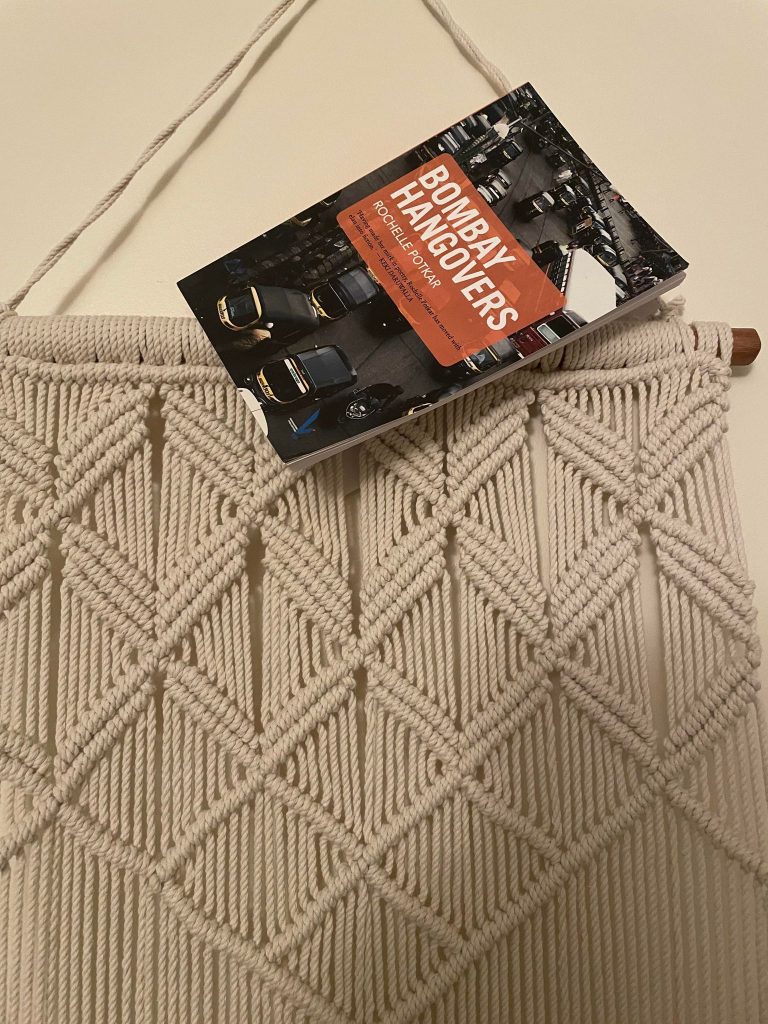I know that not for very long I will be able to catch every marble rolling down the dining table. I will have to miss some juggled balls flying mid-air and I don’t mind bad/not-so-favorable reviews, as long as they don’t come from a place of malice or hive-mind camps.
I have heard of writers who say they don’t read reviews of their books at all. ‘The good ones are not good enough – the bad ones stick to you.‘ I am quite detached that way. I entertain myself with good reviews and feast over the not-so-good ‘uns.
I happened upon this one today by Ms. Mridula Sharma and was smiling, because it gave me an opportunity after eons, to glance once again at my stories published a year ago in Feb 2021. It also made me think and my answers follow.
Rochelle Potkar’s is a fresh voice in Indian writing in English. Almost all stories are rigorously engaging. Men in Potkar’s fiction are concurrently identifiable and unexpected. This helps the short story collection formulate realities, not simply reflect the ones that we inhabit. What frustrates me is Potkar’s characterization of women, particularly in the first few stories. I realize that a single story cannot possibly contain only round characters, but I still find it frustrating to see women characters being deprived of agency or meaningful action. Potkar wants us to believe that she’s showing an ‘alternate’ reality, that she’s writing from the ‘other’ perspective, but she merely pretends to do so. Honestly, the stories could have benefitted from the complexity that Potkar has failed to ascribe to women in her writing. Once you recognize this pattern, the book starts getting exhausting. Decent book; could have been better. Do read it, though. It’s still a (blissful) departure from mainstream metropolitan narratives.
I like Mridula’s POV though I don’t agree with the point that my women characters don’t have agency. In fact, the journey of a woman, for me, is from abla naari to able naari. I don’t like the already-arrived radical feminist riding a horse, roaring hoarsely. I want to see when she started her journey. The mild women of steel. Silent rebel.
I am not “pretending” to write from any “other” perspective. I am just writing my own stories in my own unique way.
So, in The Arithmetic of breasts, Munika has peacefully accepted domesticity and motherhood instead of pursuing her career. The focus is not on her agency as much as on visceral obsessions and the saga of lust to love.
In Parfum, the story is of Russi’s search for the perfect perfume. Stella has agency in the silent way she leaves the orphanage for the free world and falls in love with a married man. While, Marinette lives in a frustrating marriage but mouths her disgruntlement as much as she wishes. This is freedom for me, where many women (in society) can’t utter what they think in their married homes to stay in conformed molds.
In Fabric, the two wives get together after their husband Kailas dies and resonate with their similar states. They don’t cat-fight but form a bond and decide to live together. This understanding and sisterhood is agency, but of a calmer variety.
In The Scent of a Conscience, Shonali enjoys romancing a married man for a vicarious evil reason. That is her choice, no matter the morals. She also leaves the man when her illusion melts into disillusionment.
In Salad, the woman saves the girl, but the girl makes a run for the door thinking of wolves and red-riding hood. Escape in the face of danger is agency.
In Mist all the sex workers and the madama are on their own trip. Holding on to a dream in the muck is empowering.
In Honor, Purva commits a crime to assert her beliefs.
These women are silent rivers. And no way am I trying to “make anyone believe anything” or “pretend” to do something. I am just telling stories, glad that most readers have resonated with their layers and complexities and enjoyed them.
Glad that there are many readers and many genres. So writers and readers will always find each other. But a slower read might help the reading of this book. I am grateful to Mridula Sharma. She made me think and that is important (for my next stories). Will my next women characters be the same? They may be loud and frothing if they are angry and I won’t let them be silent rebels or quietly stoic then. I will let them be and breathe whatever they wish to be.
I hope I can meet Mridula over a cuppa da coffee someday. Thank you for reading and engaging with this book. Thank you for your time. Wishing you the best on your own journeys, Mridula. Cheers!

Bombay Hangovers, still available on Amazon. Go grab that copy.

 © Rochelle Potkar | Powered by
© Rochelle Potkar | Powered by